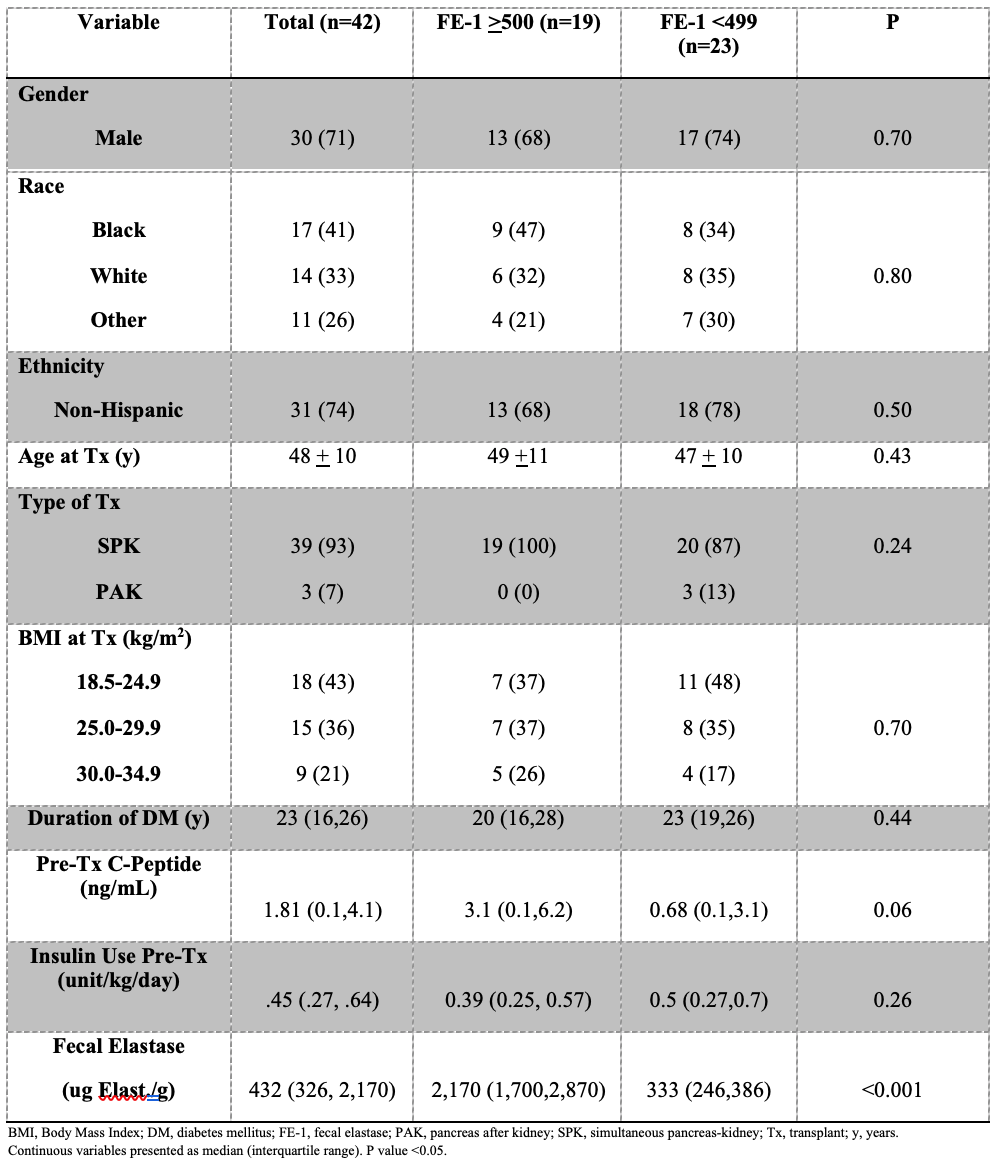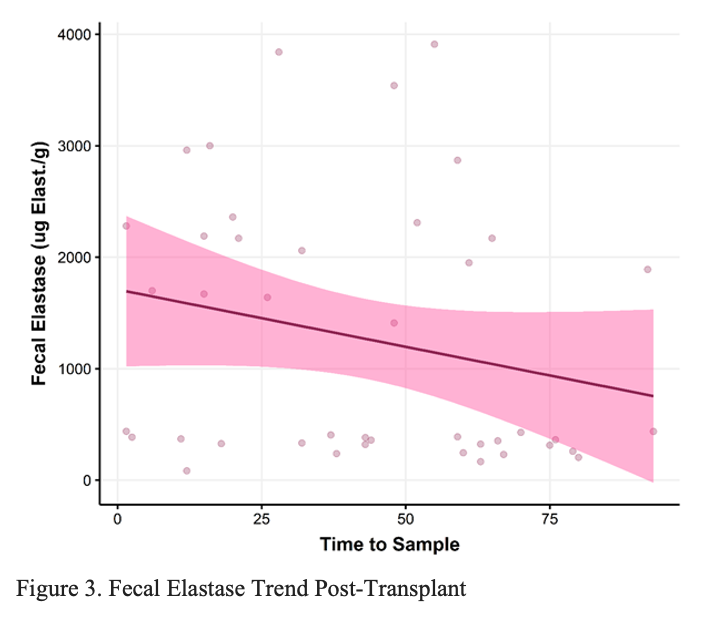The role of pancreatic exocrine secretion in weight gain following pancreas transplantation
Amanda Van Jacobs1, Michael Williams1, Adan Becerra1, Edward Hollinger1, Edie Chan1, Oyedolamu Olaitan1.
1Department of Surgery, Rush University Medical Center, Chicago, IL, United States
Introduction: Weight gain after pancreas transplant is a growing concern. Weight gain can lead to post-transplant comorbidities such as diabetes type 2. A few small studies have investigated weight gain after pancreas transplantation, but none have considered the role of the exocrine pancreas. At the time of pancreas transplant, some patients maintain normal exocrine function from their native pancreas. Therefore, we hypothesized that the presence of two exocrine pancreases (native and graft) may contribute to post-transplant weight gain via supranormal levels of pancreatic exocrine secretions within the GI tract, which may contribute to increased nutrient absorption.
Methods: We performed a single-center descriptive study including patients that received pancreas transplant between June 2013 through January 2021. The operative technique was the same in all patients, with systemic vascular drainage from graft portal vein to recipient inferior vena cava, and enteric drainage of the pancreas via an anastomosis between graft duodenum and recipient proximal jejunum. Stool samples were collected from all patients at a single time-point in the post-transplant period. Stool was used to measure fecal elastase-1 (FE-1) in order to quantify the exocrine function of native and/or graft pancreas. Levels of FE-1 were correlated with levels of post-transplant weight gain.
Results: 42 patients were included in the study (Figure 1). The median FE-1 was 432 ug /g. For those with excessive weight gain (defined by >7% body weight), median was 409 ug/g. For those without excessive weight gain, FE-1 was 405 ug/g. There was no correlation between FE-1 and weight gain post-transplant. There was an inverse correlation between FE-1 and time from transplant (p=0.02), which can be seen in Figure 2. Post-transplant weight trends were similar to prior studies, where patients lost up to 8% of body weight at 1-month post-transplant and returned to baseline weight by 6 months. The largest increase in weight occurred post-transplant between years one and two.
Conclusion: Exocrine secretions appear to decrease over time following pancreas transplant. Additional prospective research, with evaluation of pre- and post-transplant FE-1 will be required to determine the influence of exocrine function on weight gain following pancreas transplantation.


Funding provided by the Department of Surgery, Rush University Medical Center.

right-click to download
